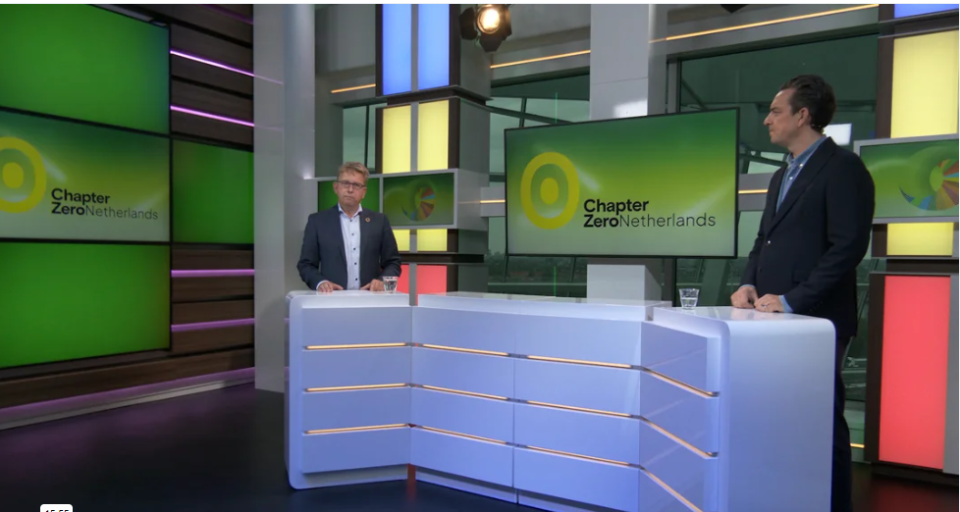Discover
Articles | Insights | Podcast

0 +
0 +
0
Podcast

COP28: COP Casts
Gathering at a pivotal moment, the 28th Conference of the Parties (COP28) unfolded against the backdrop of projections that 2023 is poised to be recorded as the warmest year on record. The accelerating impacts of climate change served as a stark reminder of the urgency addressed throughout the conference.
The COP Casts presents a series of conversations with experts and active players in the climate change and carbon markets which were centre-stage at the COP28 in Dubai that took place from 30 November to 12 December 2023.
You can find further resources and materials in the COP28 Hub. In addition, drawing from Baker McKenzie’s observations of the COP28, a concise report is compiled outlining our perspective on outcomes at COP28 (available at cop28-key-outcomes-briefing-paper.pdf (bakermckenzie.com)

Will the CSRD be relevant to my business?
As part of its flagship policy of the “European Green Deal”, the European Union has recently adopted the Corporate Sustainability Reporting Directive (“CSRD”) which will impose new reporting obligations on tens of thousands of EU and non-EU companies doing business in Europe.
This means that in-scope businesses will need to report on cross-cutting ESG issues, and make specific disclosures in relation to a wide range of issues including labour relations, lobbying activities, climate neutrality plans and targets, etc. Disclosures will have to comply with mandatory, sector-specific and detailed EU sustainability reporting standards to be adopted by the European Commission, and be audited (under 'limited assurance') by independent auditors.
Baker McKenzie has developed a CSRD tool to help you ascertain whether the directive is likely to be applicable for your business, the link to which can be found here:

SDG Pavilion: A Recap of the September 2023 SDGs at Halftime talks
United Nations General Assembly (UNGA) week was from 15-22 September 2023 in which a series of SDGs at Halftime talks were held at the SDG Pavilion. Strategically planned to coincide with the midpoint of the Sustainable Development Goals (SDGs) timeline, the event successfully rallied global leaders to uphold and intensify their commitment to the SDGs. The SDG Pavilion agenda was clear: to mobilize the world to keep the promise of the SDGs. Each talk brought new perspectives and fueled the collective resolve to achieve the SDGs by 2030.
Chapter Zero Netherlands presents a debrief of this event. Hosted by Jacques Buith and Bas Verhart, the session provides firsthand experiences and in-depth analysis of the SDGs at Halftime sessions. The hosts present five key takeaways from their experience at UNGA week. These key points include:
- The SDG Pavillion
- Sessions on Artificial Intelligence
- Planetary Guardians
- Climate Action and Green Transition
- Winning Strategies of Financing the SDGs

Collaborative Research for Chapter Zero Netherlands- A Living Lab Project
A collaboration between the Living Lab at the faculty of Campus Fryslan University of Groningen and Deloitte has produced two research papers. The research was undertaken by second-year students from the bachelor’s programme - Global Responsibility & Leadership (GRL) who take part in the Living Labs at Campus Fryslan. Deloitte, as one of the partner companies of Chapter Zero, provided the students with an opportunity to take a closer look at the climate change strategies among Dutch companies and organisations.
Living Lab Research ‘21/‘22 - Supervisory Board Members on Addressing Climate Change in the Netherlands
The project aimed to evaluate the climate change literacy of Supervisory Board members in the Netherlands. The research revealed that insufficient training on climate change risks and opportunities, competing priorities, and the complexity of climate-related issues as challenges Board members face in addressing climate change. The project's conclusion points out that Chapter Zero represents a valuable resource for Supervisory Board members. It serves as an effective community-driven tool for non-executive leaders to navigate current challenges and establish improved practices in addressing climate-related issues.
Living Lab Research ‘22/‘23 - Interdisciplinary Sustainability Assessment of the Top Companies in the Netherlands
Students found that many companies struggle to fulfil their responsibility for sustainability. They examined how Non-Executive Business Directors can evaluate sustainability performance in the top 25 Dutch companies. Their research focused on ESG and SDG indicators to determine if companies merely follow regulations or genuinely integrate sustainability into their mission. The assessment of AEX-listed companies' annual reports revealed strong governance practices but limited environmental action. A gap exists between intentions and actions due to a lack of standardised measurement methods that diffuse internal accountability. The study underscores the importance of transparent and comprehensive reporting, emphasising its potential for long-term value creation, risk management, and improved stakeholder engagement.

What does the new IPCC report mean for board directors?
The UN Intergovernmental Panel on Climate Change (IPCC)’s fourth and final instalment of its sixth assessment report provides a clear and robust scientific understanding of the current state of the climate system and how it is changing.
According to the report, businesses risk experiencing significant losses due to climate change, but can also collectively influence a large share of global emissions, and are well-suited to take a leading role in a just transition to net zero.
What are the key takeaways and recommendations from the IPCC report board directors need to know? The Climate Governance Initiative has analysed the report and developed key considerations for climate leadership from the board level.

Board Effectiveness and the Chair of the Future: Five fundamental forces that define the modern chair's role
As organizations across industries and geographies take swift, bold actions to address the climate challenge, the chair’s role has been slowly transforming toward greater transparency and accountability, to become increasingly visible to a wider group of stakeholders, not just shareholders. This report tries to answer the question "What does it take to be a successful chair in this environment?" The Deloitte Global Boardroom Program undertook research to find out, and in this publication, we offer it to you. This report presents the reality, aspirations, and advice expressed by more than 300 chairs.

How Boards can Focus on What Matters in Sustainability
This article from BCG discusses the fact that although most board director's understand and agree with the need to incorporate sustainability within their corporate strategy, more than half of the same directors say their boards are not doing this effectively. to better understand the disconnect, the article looks at three areas of focus; sustainability hygiene, sustainability controls and practices, and strategic reflection and implications.

The Race to Net-Zero: Is the global business community on track to beat the clock?
Across sectors and industries, from startups to multinationals, companies are talking about their sustainability performance — and in particular, their intention to reach net-zero. Businesses recognize that a net-zero pledge can be a powerful public message, given the growing pressure to tackle the climate crisis and the expectation that business is part of the solution. But amid all the rhetoric, the question is how much progress are we really making? Are we on track to reach net-zero by 2050, or are businesses simply jumping on the bandwagon to nowhere? Baker McKenzie surveyed 1,000 sustainability leaders and general counsel about their sustainability strategies, focusing on net-zero targets and progress toward those targets. Find out more in Baker McKenzie's 'The Race To Net-Zero' Report.

Research Materials on Climate Action
With thanks, our host organisation the University of Groningen we share some publications and scientific materials on climate change to get you started on topics such as the science of climate change, climate adaptation, and barriers to implementing mitigation options.

Shaping the Board's Strategic Direction on Climate Change
The Climate Governance Initiative together with the World Economic Forum and Deloitte, have produced four guides to help boards steer their organisations toward net-zero emissions.
The briefing papers are part of an ongoing series of thought leadership designed to enhance climate competence and steward climate action by board directors across the globe, helping to educate and get chairpersons and their boards up to speed on stakeholder response, risk assessments and alternative decarbonization pathways.